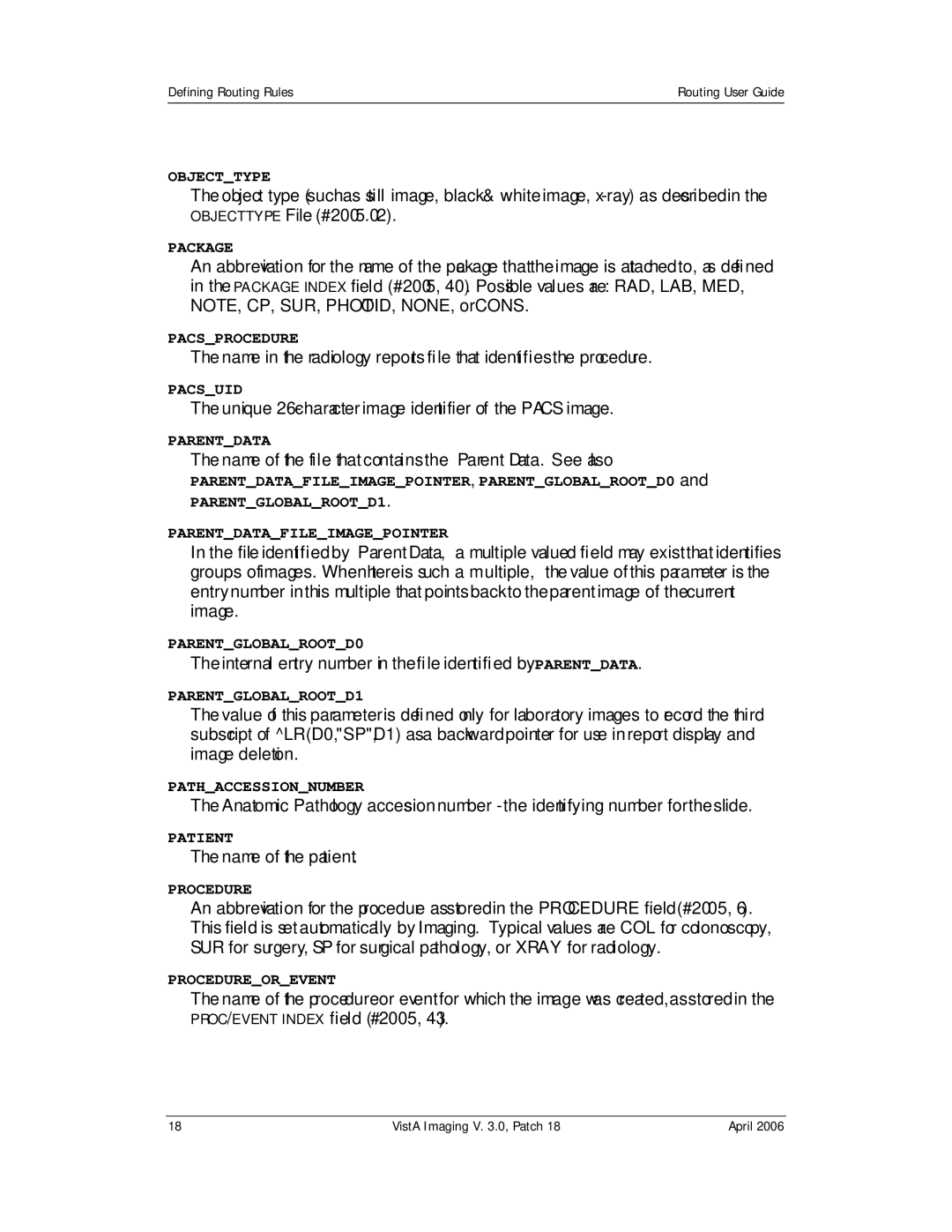Defining Routing Rules | Routing User Guide |
|
|
OBJECT_TYPE
The object type (such as still image, black & white image,
PACKAGE
An abbreviation for the name of the package that the image is attached to, as defined in the PACKAGE INDEX field (#2005, 40). Possible values are: RAD, LAB, MED, NOTE, CP, SUR, PHOTOID, NONE, or CONS.
PACS_PROCEDURE
The name in the radiology reports file that identifies the procedure.
PACS_UID
The unique 26-character image identifier of the PACS image.
PARENT_DATA
The name of the file that contains the “Parent Data.” See also
PARENT_DATA_FILE_IMAGE_POINTER, PARENT_GLOBAL_ROOT_D0 and PARENT_GLOBAL_ROOT_D1.
PARENT_DATA_FILE_IMAGE_POINTER
In the file identified by “Parent Data,” a multiple valued field may exist that identifies groups of images. When there is such a “multiple,” the value of this parameter is the entry number in this multiple that points back to the parent image of the current image.
PARENT_GLOBAL_ROOT_D0
The internal entry number in the file identified by PARENT_DATA.
PARENT_GLOBAL_ROOT_D1
The value of this parameter is defined only for laboratory images to record the third subscript of ^LR(D0,"SP",D1) as a backward pointer for use in report display and image deletion.
PATH_ACCESSION_NUMBER
The Anatomic Pathology accession number - the identifying number for the slide.
PATIENT
The name of the patient.
PROCEDURE
An abbreviation for the procedure as stored in the PROCEDURE field (#2005, 6). This field is set automatically by Imaging. Typical values are COL for colonoscopy, SUR for surgery, SP for surgical pathology, or XRAY for radiology.
PROCEDURE_OR_EVENT
The name of the procedure or event for which the image was created, as stored in the PROC/EVENT INDEX field (#2005, 43).
18 | VistA Imaging V. 3.0, Patch 18 | April 2006 |
